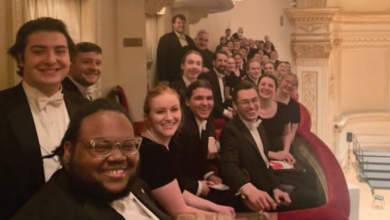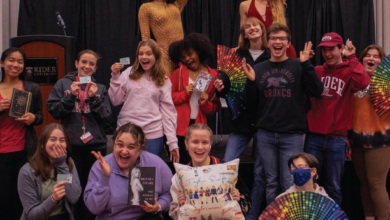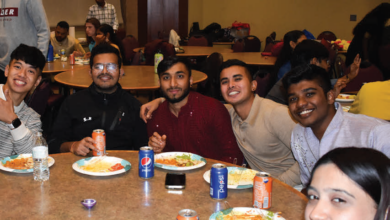
Meals on Wheels continues to provide Mercer County community
By Bridget Gum
Rider University has always put a huge emphasis on the importance of community service.
Volunteering is held in such an important light that it has become a part of the engaged learning program graduation requirement.
The Center for Service & Civic Engagement, headed by Joan Liptrot and Susan Perls, works to provide community service opportunities for students throughout the school year. Due to the coronavirus pandemic, many of the typical service opportunities have been temporarily stopped to keep students and those they are volunteering with safe.
One such service opportunity that is still open to all students is the Meals on Wheels program. According to Susan Perls, the Meals on Wheels program was introduced at Rider in 2018 and works in partnership with the Meals on Wheels branch of Mercer County.
Originally, there was only the delivery aspect available to students. The delivery system works by bringing pre-made meals to homebound residents in Mercer County via two volunteers, one driver and one runner, and they deliver by area or street, depending on the population.
According to Perls, students typically “were able to go inside the home, have some light conversation, drop off the meal, check and see how they’re doing.” However, due to the coronavirus, students have only been able to leave the meals on the participants’ doorstep or door handle.
The Center for Service & Civic Engagement has now added two new aspects of the Meals on Wheels program to the original program, which was planned before the pandemic and had to be slightly modified because of it.
One of these aspects is that volunteers now have the option to help prepare the meals that get delivered. Perls said that volunteers work in Daly Dining Hall along with kitchen staff and a dietitian, to provide nutritious, balanced meals that stick to an appropriate portion control according to each participant.
These meals must be accommodated according to certain dietary restrictions and other health concerns that the volunteers are made aware of. Since the people being served are home-bound individuals, the majority of those individuals also struggle with chewing or using utensils. Often the volunteers have to cut or puree the food so it’s easier for participants to eat.
Things have changed in this process due to the pandemic. The morning shifts on meal preparation are solely dedicated to making meals. All of the volunteers must wear gloves, masks and be cleared through the Campus Clear app. The afternoon shifts are dedicated to some meal preparation but mostly sanitization and maintaining extreme cleanliness to prevent the spread of the coronavirus.
Typically the Meals on Wheels volunteer opportunities at Rider extend to surrounding community members. Perls mentioned that, “In the past, we have permitted friends of Rider, staff, students and siblings or children of people who work at Rider or have a friend who’s a student at Rider.” This has been limited now because of the coronavirus and the campus policies on visitors.
Another new aspect to the Meals on Wheels program is the Friendly Visitor Program. This program was designed to provide some contact with people for those who are homebound as they usually live alone and have very little outside contact with others. This was mostly done to monitor the participants’ mental health.
During the Coronavirus pandemic, the program has faced a lot of change. Instead of going into the participants’ home and having in-person visits, the volunteers now call or video chat with the participants.
Throughout the pandemic, these home-bound individuals are also usually the ones who are most high-risk for the coronavirus, so they have even less contact than normal.
Angel Delcid Palacios, a senior sociology major, has been volunteering with the Meals on Wheels program in one way or another since his junior year through his fraternity, Alpha Phi Omega (APO).
Delcid Palacios has been primarily volunteering with the Meals on Wheels through delivery, but this year, he’s also been involved in the Friendly Visitors program. Palacios is a commuter, so he comes in for classes and to volunteer. He said, “It’s annoying wearing a mask for the entire time, but I do it because I do not want to get sick and I respect the people around me by wearing it.”
Volunteering, especially with the Meals on Wheels program, is important now more than ever, as Susan Perls mentioned.
“We’re in a pandemic right now but that doesn’t halt food insecurity, we still have people in the community who need food, more than ever, so there is still a need, there will always be a need to help out folks in the community,” said Perls.



